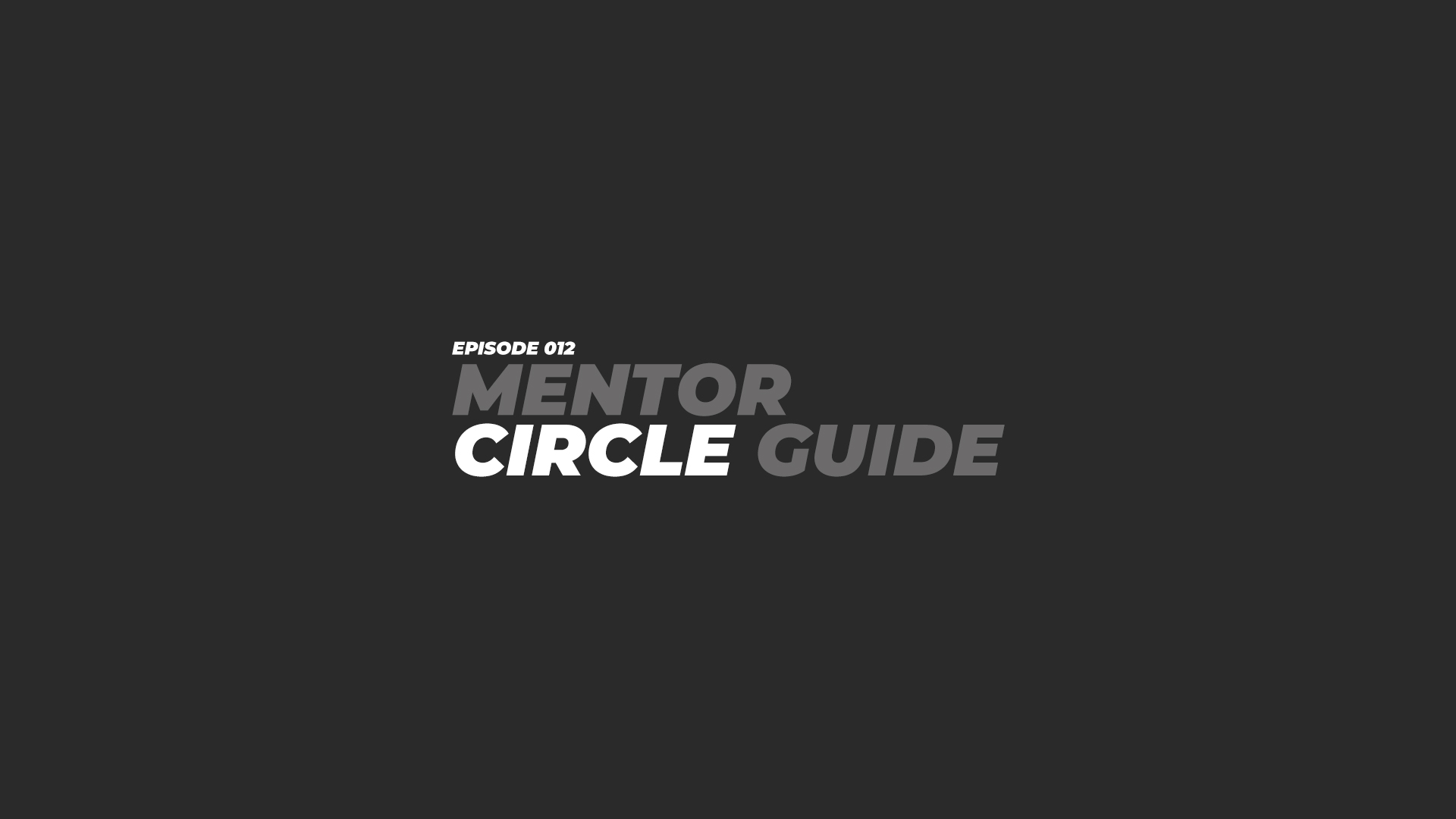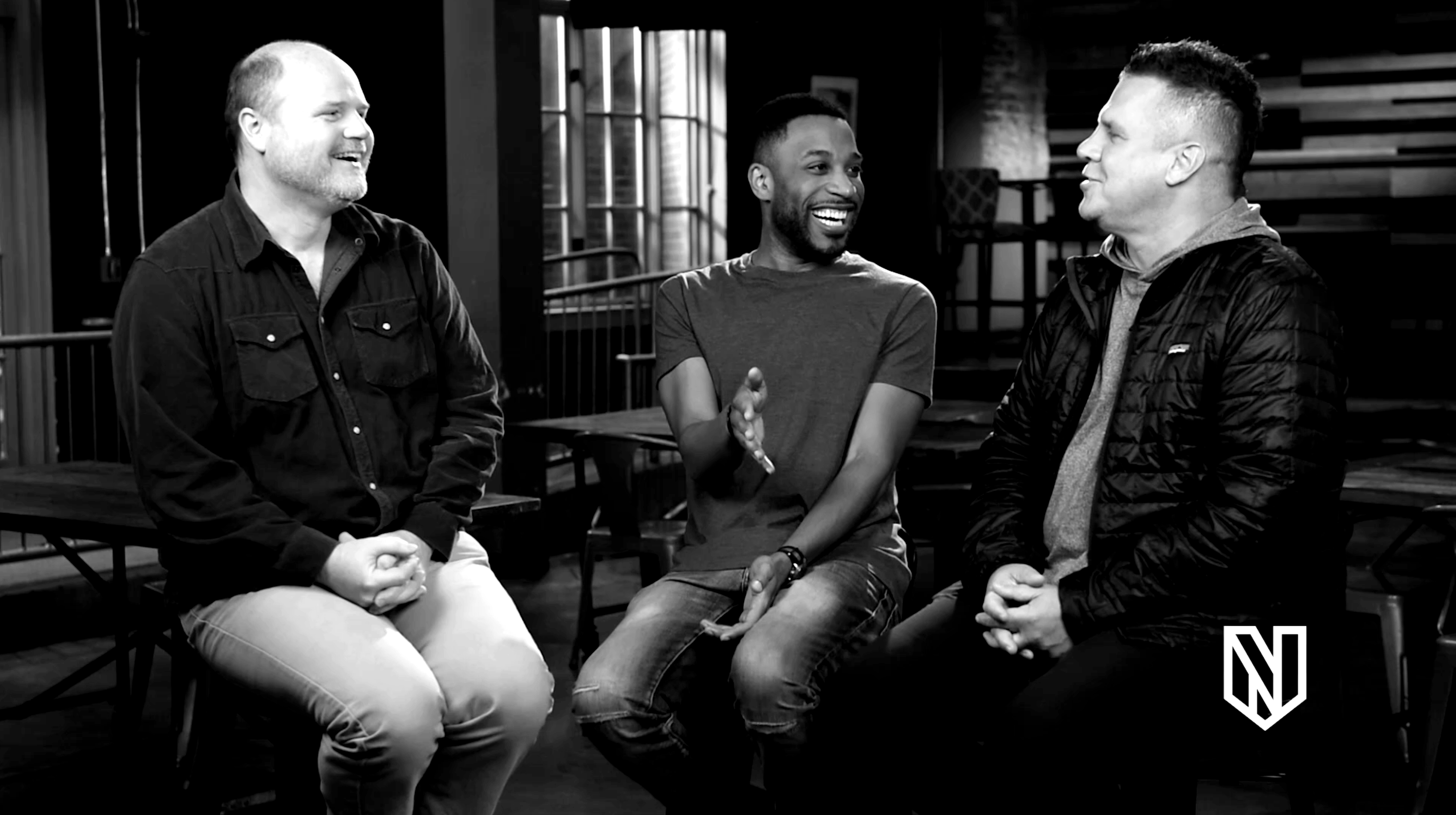If you are a fan of the television show The Wire, you might recognize Todd Scofield from his recurring role in Seasons 3 and 5. Todd is quite the versatile actor. Whether television, four seasons at North Carolina’s Shakespeare Festival or recurring roles in legendary plays on noted stages like the Kennedy Center as well as productions for Shakespeare Theatre Company, Folger Theatre, Olney Theater, and Ford’s Theater, you can see Todd’s acting range with every performance.
Here’s the truth: if you’re working hard at acting humble, you’re not actually humble. Virtues are a lot like clothes; you can put them on without owning them. It’s tricky because we don’t just fool the people around us by playing dress up—we fool ourselves. Humility is much easier to manufacture than it is to internalize.
We all know how much influence humble people have. Todd Scofield is an incredible example of that. This is INFLUNSR. This is Todd Scofield.

God has laid the groundwork for us to put up with and get along with anybody, and when we lose sight of the significance of our invitation, we get into trouble. Humanly speaking, you can always find an excuse not to forgive, not to accept, not to care what happens to you, not to choose to put someone else first. Humanly speaking, you can always justify demanding your way. But once you look at someone else through the lens of what Christ has done for you — once you remember what you have been invited to participate in — you lose any excuse.
Here’s the punch line: When you lose sight of what God has done for you in Christ, it says something about your relationship with Jesus. You’ve lost sight. You are drifting. You’re not engaged. This is why there is so much in the New Testament about how we treat others and the relationship between the vertical and horizontal. You can’t really be right with God and out of sorts with the people he has put in your life. To refuse to choose first to go last, to forgive, accept, serve, care is a reflection of your gratitude or ingratitude towards Jesus.
You’ve forgotten your invitation.

Wrestle with these questions:
Is the way your student9s) treat others an indication of how well he or she understands what God through Christ has done for them? Why? Why not?
Re-read Ephesians 4:1-4. Can you really be right with God and out of sorts with the people He has put in your life? Explain your answer.
Discuss this statement: To refuse to forgive, accept, serve, submit, encourage, and care is a reflection of your gratitude or ingratitude toward your Heavenly Father.

We asked you to read the story of the day Muhammad Ali, three months removed from losing the heavy weight championship of the world, saved a man’s life who was contemplating suicide. “Former heavyweight champions slip out of the news as easily as ex-presidents, but Muhammad Ali was never your garden-variety champion of all the world,” said Walter Cronkite on the Jan. 20, 1981, edition of the CBS Evening News. “Yesterday in Los Angeles, he responded like a superhero when a distraught man threatened suicide.”
The day Ali saved Joe’s life, he had already begun to crumble. He was five years removed from “The Thrilla in Manila,” the fight against Joe Frazier that many believe irrevocably destroyed something inside him. Back in October, he fought his friend and former sparring partner Larry Holmes, who gave him a beat down so vicious that Ali didn’t come out for the 11th round; afterward, Holmes was reduced to tears. In three short years, Parkinson’s would be diagnosed. But as Robert Lipsyte — a former Times reporter who has spent much of his life chronicling Ali’s life — remembers it, Ali was still “the most beautiful creature on the planet.”
INFLUNSR defines humility as choosing first to go last. You can give, you can help, you can serve others, you can do the kindest acts, but do you do it with pride? Do you do it to be noticed? Do you do it to be seen as nice? Even though you conceal it do you hope people see you?
Do you look down upon others? If you did would you admit that you struggle with looking down upon others? Is everything and everyone a competition to you?
Do you think that you are better than others or entitled to more than others because of how smart you, how you look, what you own, how much you make, your achievements, etc.? We can struggle with pride in so many different ways and never notice it. Do you always want to be right? Are you quick to admit that you’re wrong?
Read Luke 14:8-10 not and let’s discuss its ramifications…
“When you are invited to a wedding feast, don’t sit in the seat of honor. What if someone who is more distinguished than you has also been invited? The host will come and say, ‘Give this person your seat.’ Then you will be embarrassed, and you will have to take whatever seat is left at the foot of the table! Instead, take the lowest place at the foot of the table. Then when your host sees you, he will come and say, ‘Friend, we have a better place for you!’ Then you will be honored in front of all the other guests.”

We asked you to take a journey down memory lane and watch the very first Toy Story movie. A little boy named Andy loves to be in his room, playing with his toys, especially his doll named “Woody”. But, what do the toys do when Andy is not with them, they come to life. Woody believes that his life (as a toy) is good. However, he must worry about Andy’s family moving, and what Woody does not know is about Andy’s birthday party. Woody does not realize that Andy’s mother gave him an action figure known as Buzz Lightyear, who does not believe that he is a toy, and quickly becomes Andy’s new favorite toy. Woody, who is now consumed with jealousy, tries to get rid of Buzz. Then, both Woody and Buzz are now lost. They must find a way to get back to Andy before he moves without them, but they will have to pass through a ruthless toy killer, Sid Phillips.
At a critical point in the movie, it begins to dawn on Buzz that he is just a toy and may not be able to save the day. He struggles with this realization and resists it. He tries to leap to the rescue, not knowing he can’t actually fly, and falls from the second floor breaking off his arm. Suddenly, Buzz realizes he’s just a toy, that all his boasting was based on an illusion. He then sinks into a major depression, his sense of himself destroyed. In the end, Buzz does save the day, by simply being what he was made to be: a toy. One of the kids in the neighborhood takes him up and attaches a rocket to him. In the end that enables Buzz to fly and save the day at a critical moment. The humiliation Buzz suffered enabled him to conquer his pride and made him able to save the day.
Let’s discuss this statement: Your greatness does not come from your own self-inflated notions, but from God. And God does not need you to pretend to be something you are not. What He needs is for you to be exactly what He created you to be. And it is often in our weakness that He is able to do His greatest work.

We asked you to read the article entitled The Benefits of Generosity. Year after year, more and more studies are highlighting the benefits of generosity on both our physical and mental health. Not only does generosity reduce stress, support one’s physical health, enhance one’s sense of purpose, and naturally fight depression, it is also shown to increase one’s lifespan.
Of the four steps to fully practicing generosity, which the hardest for you to apply? Why? Which is the easiest? Why?

We asked you to read the Forbes article Tony Bennett Reaches Extension With Virginia, Rejects Raise. The national championship banner is now hanging in the rafters. But University of Virginia men’s basketball coach Tony Bennett isn’t getting a salary increase because of his success.The 50-year-old coach declined to take a raise while extending his contract an extra year through 2025-26, the school announced Monday. Bennett asked that the money be used to pay his staff and be utilized for program improvements for future teams.
If humility is choosing first to go last, how does this story stand out to you as it relates to humility? Let’s discuss your thoughts about how humility intersects with the cultural standard of always wanting, needing more. As a next generation leader, how do you think about this statement from this article: “… if the Million Dollar Man Ted DiBiase taught my generation’s youth anything, it’s that everyone has a price. For Tony Bennett, his has yet to be reached..…”

We asked you to watch the documentary Batkid Begins. On one day, in one city, the world comes together to grant one 5-year-old cancer patient his wish. The documentary “Batkid Begins” looks at the “why” of this flash phenomenon. Why did the intense outpouring of spontaneous support for a child reverberate around the world and become one of the biggest “good news stories” ever? The film explores what happens when an event goes unintentionally viral, and reveals surprising truths about what happens when a nerve is touched in our digital society. Will Make-A-Wish fulfill its mission to help Miles reclaim his childhood after battling disease for more than half his short life? In the end, the film leaves audiences to decide; did Miles need the world for inspiration? Or did the world need Miles?
Let’s discuss this:
Why couldn’t all those people become as enthusiastic in helping the hundreds of Bay area children who were homeless or victims of child abuse? Let’s read Matthew 26:6-13 NLT. How do the crowds — some members of which flew in from around this and other countries so they could be part of this outpouring of good will — demonstrate to you the power of humility?

We asked you to watch the Ted Talk Helping Others Makes Us Happier — But it Matters How We Do It. Research shows that helping others makes us happier. But in her groundbreaking work on generosity and joy, social psychologist Elizabeth Dunn found that there’s a catch: it matters how we help. Learn how we can make a greater impact — and boost our own happiness along the way — if we make one key shift in how we help others. “Let’s stop thinking about giving as just this moral obligation and start thinking of it as a source of pleasure,” Dunn says.
Think about this: how can those who choose first to go last in your church, school and community be rewarded with the opportunity to see the specific impact that their generosity is having and to connect with the individuals and communities they’re helping? Does this idea fly in the face of Jesus’ idea of considering others before yourself? Why or why not? Let’s discuss.

Disclaimer:
INFLUNSR’s mission is to fuel the next generation of leaders worth following and to help students learn how to think, not what to think. Any articles posted and questions asked are intended for that sole purpose.



